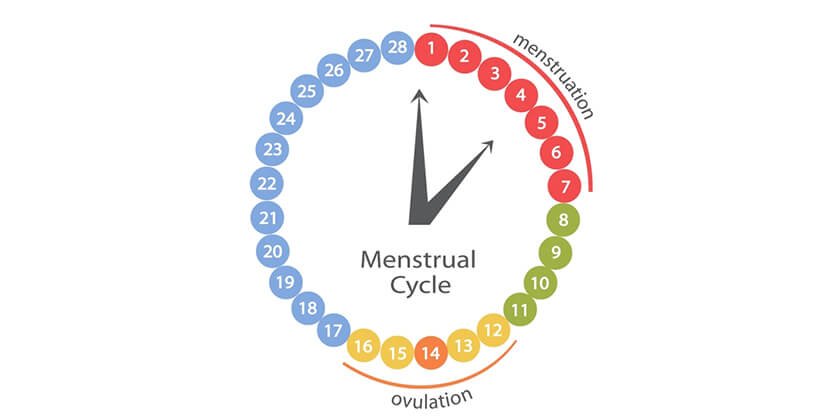
Benefits of Moringa Supplements for Women’s Health
October 14, 2024
How to Choose the Right Sanitary Napkin for Heavy Flow
October 14, 2024Let’s get real for a moment. Why is it that something as natural as menstruation—something half of the world experiences—is still treated like a dirty secret? Why are we whispering about our periods in hushed voices, hiding our pads like they’re contraband, and apologizing for our bodily functions? It’s 2024, and yet, menstruation remains one of the most stigmatized experiences women face globally. But the truth is, we’ve had enough.
This guide isn’t about “empowerment” in the abstract, feel-good sense. It’s about a call to action, a wake-up call for all of us. It’s time to break the silence, challenge the shame, and change the narrative surrounding menstruation once and for all.
1. Menstruation: The silence is deafening
Let’s start by addressing the elephant in the room—the silence. If you’ve ever had to discreetly slip a pad into your pocket or coded your period pain as a “stomach ache” to avoid the judgmental looks, you know what I’m talking about.
From a young age, we’re taught that periods are something to be embarrassed about, something to hide. Many of us learned about periods in awkward, half-baked “sex-ed” classes where boys giggled in the back, and we were told to deal with our “time of the month” as discreetly as possible. That silence, that shame, followed us into adulthood.
It’s no wonder that many women feel ashamed to even talk about their periods, even with other women. This silence is harmful. It creates barriers between us, makes us feel like our bodies are betraying us, and worst of all, it keeps us from addressing serious menstrual health issues openly. It’s time to speak up.
2. Dismantling the shame: It’s not just a “Woman’s Issue”
Menstruation has long been framed as a “women’s problem,” something to be dealt with quietly and behind closed doors. This attitude reinforces the idea that periods are gross, dirty, and inconvenient, something to be tolerated rather than understood and accepted.
But periods are not a “problem,” they’re biology. They’re the reason any of us are here in the first place. And they’re not exclusive to cisgender women either—trans men and non-binary people menstruate too. We need to break free from the old, tired narratives that isolate and stigmatize people who menstruate.
Here’s the truth: menstruation is not a source of shame. It’s a sign of health, vitality, and life. It’s time to dismantle the shame surrounding our bodies, starting with how we talk about them. Let’s talk openly about the pain, the cramps, the irritation, the heavy flow, and the moments where it feels unbearable. In doing so, we normalize the experience for the next generation.
3. Acknowledging period pain: Stop downplaying your suffering
We’ve all done it—pushed through crippling period pain while pretending everything is fine. Society has conditioned us to downplay our pain, to smile through the agony, and to act as though our periods don’t affect us. But that’s a lie, and it’s a harmful one.
For some women, menstruation is more than just an inconvenience; it’s a debilitating experience that affects their ability to work, socialize, and even get out of bed. Yet, despite this, period pain is often dismissed as “just part of being a woman.” We’re told to take a painkiller and move on.
But the reality is, period pain can be a sign of underlying conditions like endometriosis, polycystic ovary syndrome (PCOS), or uterine fibroids. These conditions often go undiagnosed because women are expected to suffer in silence.
It’s time to stop downplaying our pain. Listen to your body. If something feels wrong, it probably is. Speak up, demand answers, and don’t let anyone tell you that your pain isn’t valid.
4. The workplace stigma: Periods and productivity
Let’s talk about periods in the workplace—another taboo subject. For many women, managing their period at work is a nightmare. From scrambling to hide tampons in your pocket to suffering through cramps because you don’t want to seem weak or unprofessional, menstruating in the workplace can feel like a constant battle.
The societal expectation that women should power through periods without complaint is not only outdated but damaging. Menstrual leave is still a controversial topic, even though research shows that accommodating women during their periods can actually improve productivity. Instead of pretending periods don’t affect us, we should be pushing for workplace policies that recognize the real impact menstruation can have on women’s ability to perform at their best.
It’s not about weakness, it’s about giving women the support they need to thrive in all aspects of life, including work.
5. Educating the next generation: How we talk to girls about periods?
If we want to break the taboo around menstruation, we need to start with how we educate the next generation of girls. Too many of us grew up thinking periods were something to be ashamed of, something to hide from boys and even from other girls. The cycle of shame starts young, and it’s up to us to change the narrative for the girls coming after us.
It’s time to start talking about menstruation in a way that is open, honest, and empowering. Let’s teach girls that their periods are not a curse or a burden but a natural part of life. Let’s give them the information they need to understand their bodies and the confidence to speak up when something doesn’t feel right.
When we de-stigmatize periods from a young age, we empower girls to take control of their menstrual health, to advocate for themselves, and to break the cycle of shame.
6. Menstrual equity: The fight for access
Here’s a hard truth: menstruation isn’t just a biological function; it’s also a financial burden for many women. In countries around the world, period poverty is a serious issue. Women and girls without access to sanitary products are forced to use makeshift solutions—rags, old clothes, or even leaves—putting their health at risk.
The fact that sanitary products are still considered a luxury item in many places is nothing short of a disgrace. In some regions, girls miss school or women miss work because they can’t afford pads or tampons. The fight for menstrual equity isn’t just about breaking taboos; it’s about ensuring that every woman has access to the basic hygiene products she needs to manage her period safely and with dignity.
It’s time to demand free or affordable menstrual products for all. No woman should ever have to choose between buying food or buying pads.
7. It’s time to speak up: Changing the conversation
If we want to break the taboo around menstruation, we need to start speaking up. The shame, the silence, the embarrassment—it only continues if we let it. Start having open conversations with your friends, your family, and your colleagues. If someone makes an ignorant or dismissive comment about periods, challenge them.
We can’t expect the world to change if we stay silent. It starts with each of us being honest about our experiences. Talk about your period like you would talk about anything else happening with your body—because that’s exactly what it is. No more code words, no more hiding.
Speak up. Your voice has power.
8. Be your own advocate: Trust your body
Finally, breaking the taboo around menstruation means being your own best advocate. Too many of us have been taught to ignore or downplay the signals our bodies are sending us. If your period is irregular, excessively painful, or causing you other problems, don’t let anyone dismiss your concerns. Your health matters, and you deserve answers.
Trust your body, demand respect, and don’t accept anything less than the care you deserve. Breaking the taboo starts with you—by being unapologetically honest about your menstrual experience and refusing to be silenced.
Conclusion
Breaking the taboo around menstruation isn’t easy, but it’s necessary. We owe it to ourselves, to each other, and to the girls who are just starting their journeys with menstruation. By speaking up, by dismantling the shame, and by advocating for better education, workplace policies, and access to menstrual products, we can start to create a world where periods are no longer a source of stigma but a normal, respected part of life.
It’s time to stop apologizing for our bodies. We have nothing to be ashamed of.




